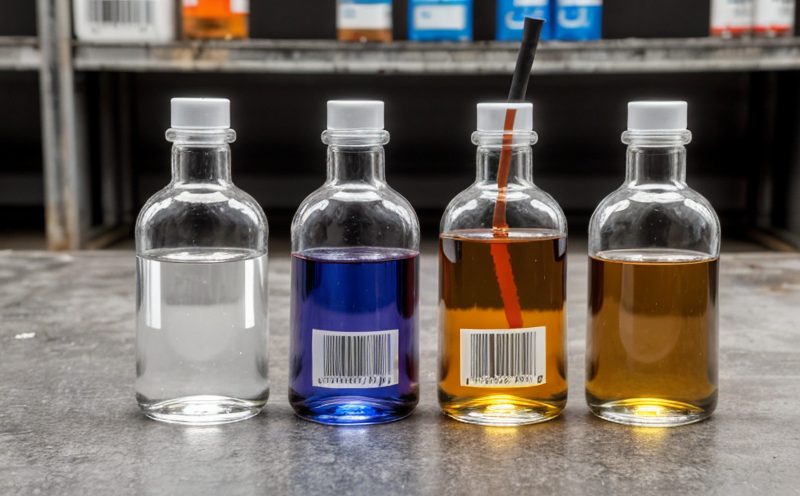IEC 60216 Thermal Stability Testing of Insulating Materials
The IEC 60216 standard is a globally recognized protocol used to evaluate the thermal stability and resistance to degradation of insulating materials under defined temperature conditions. This testing method is particularly critical for electrical equipment, where insulation performance can directly impact safety, reliability, and service life.
Thermal stability tests are essential in ensuring that insulating materials maintain their integrity over a wide range of temperatures. These tests help identify the maximum operating temperature at which an insulating material can be used without undergoing significant degradation or loss of mechanical properties. The test procedure involves exposing specimens to controlled heating and cooling cycles, followed by visual inspection for any signs of discoloration, cracking, or other damage.
The IEC 60216 standard is widely adopted across various sectors including aerospace, automotive, and electronics manufacturing. Compliance with this standard ensures that the insulating materials used in these industries meet strict quality and safety requirements set by international bodies like the International Electrotechnical Commission (IEC).
The testing process typically involves selecting appropriate specimens made from the specified insulating material. These specimens are then subjected to controlled temperature conditions, which simulate real-world usage scenarios. After exposure to heat, cooling, and possibly humidity, the specimens undergo detailed evaluation for any changes in color, texture, or mechanical properties.
Understanding the thermal stability of an insulating material is crucial for product design and development. By identifying the maximum operating temperature, manufacturers can optimize their designs to enhance performance while ensuring safety standards are met. This testing method also aids in predicting long-term reliability, which is vital for products with extended service life requirements.
The IEC 60216 standard provides a standardized approach to conducting these tests, ensuring consistent results across different laboratories and regions. This consistency is essential for global compliance and market entry strategies. For instance, aerospace companies must comply with stringent safety regulations, while automotive manufacturers prioritize durability and efficiency in their designs.
In summary, IEC 60216 thermal stability testing plays a pivotal role in ensuring the quality and reliability of insulating materials used in critical applications. By adhering to this standard, organizations can enhance product performance, extend service life, and maintain compliance with international safety standards.
Scope and Methodology
The scope of IEC 60216 thermal stability testing is broad, encompassing various types of insulating materials used in electrical equipment. This includes but is not limited to polymeric films, adhesives, paints, and varnishes.
| Parameter | Description |
|---|---|
| Temperature Range | Typically from -50°C to +200°C depending on the material type. |
| Time Exposure | Varies based on the test objective, often ranging from 1 hour to several days. |
| Environmental Conditions | Involves controlled temperature and sometimes humidity exposure. |
| Evaluation Criteria | Visual inspection for discoloration, cracking, or other signs of degradation. |
The methodology involves preparing specimens according to the specified dimensions in IEC 60216. These specimens are then exposed to controlled temperature conditions over a defined period. After exposure, they undergo thorough evaluation for any changes in appearance or mechanical properties that could indicate thermal degradation.
Benefits
- Ensures compliance with international standards and regulations.
- Promotes product safety and reliability.
- Aids in optimizing material selection for specific applications.
- Enhances long-term performance and durability of electrical equipment.
- Supports global market entry by meeting regulatory requirements.
- Reduces the risk of product failure due to thermal degradation.
- Facilitates continuous improvement through detailed data collection.
- Promotes trust among stakeholders, including customers and regulators.
Quality and Reliability Assurance
The IEC 60216 standard is integral to the quality assurance process in electrical manufacturing. By adhering to this standard, manufacturers can ensure that their insulating materials meet the highest safety and performance standards.
During production, specimens are prepared according to the specified dimensions in IEC 60216. These specimens are then subjected to controlled temperature conditions over a defined period. After exposure, they undergo detailed evaluation for any changes in appearance or mechanical properties that could indicate thermal degradation.
The results of these tests provide valuable insights into the long-term performance and reliability of insulating materials. This information is crucial for optimizing material selection and design, ensuring compliance with international standards, and enhancing product safety.
In addition to testing individual specimens, manufacturers may also conduct batch testing to ensure consistent quality across production runs. This approach helps identify any issues early in the manufacturing process, allowing for prompt corrective action. By adhering to IEC 60216, organizations can enhance their reputation and build trust with customers and regulators.





